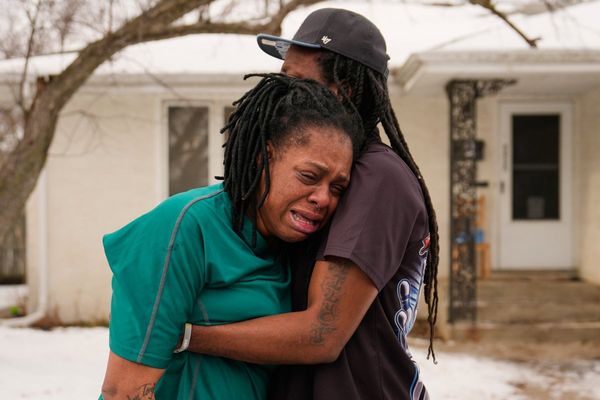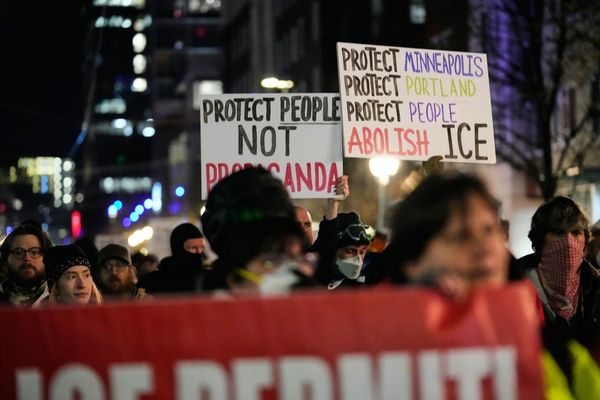
Idlib, Syria – In a small house in northwestern Syria, Muhammad Haninun is glued to his mobile phone, following the latest Israeli attacks taking place in Gaza.
For more than a month, he has watched videos of the Israeli bombardment of the Gaza Strip and the displacement of civilians trying to escape the bombing. All the while, the events bring back clear memories of what he endured 75 years ago.
The 80-year-old cannot help but think about the similarities between what he is seeing in Gaza and what he experienced when he and his family were displaced during the Nakba, or “catastrophe”, in 1948 when Israel was created and more than 750,000 Palestinians were forcibly uprooted from their land and thousands were killed.
“The Palestinian tragedy is happening again,” Haninun said. “The people in Gaza are facing war without receiving any help the same as we did before.”

‘A cracked record’
Since October 7, when the armed wing of the Palestinian group Hamas, breached the separation wall that surrounds Gaza and attacked southern Israel, Western countries, led by the United States, hastened to condemn the movement that has been running the besieged Gaza Strip since 2006.
The condemnation was followed by Western financial and military support for Israel, which has been relentlessly bombing Gaza, one of the most densely populated areas in the world, for 35 days. Since October 7, at least 10,812 Palestinians, including 4,412 children, have been killed in Israeli attacks on Gaza. More than 1,400 people have been killed in Israel.
Similarly, during the first half of the 20th century, Britain provided military support in the form of protection and weapons to Zionists, encouraged Jewish immigration from Europe to Palestine and allowed them to displace hundreds of thousands of Palestinians from their homes as they built a new state for themselves.
In November 1948, Israelis used aircraft to bomb the northern village of Tarshiha in the countryside of Acre, destroying three houses – including Haninun’s family home – and killing seven of his relatives.
“Before that, we had evacuated our homes several times for two or three days and returned. We did not take anything,” he recalled. “We thought we would return, especially since we were not able to recover the dead from under the rubble.”
But they never could.
Haninun, then five years old, and four members of his family were forced to move between seven cities in Lebanon and Syria before they were allowed to stay in a refugee camp in Aleppo, a “tragic” setting with a small room for each family, no kitchen, bathroom or running water and shared toilets.
He remembers Arab radio stations and governments promising Palestinians a quick return – after seven days, then after seven weeks, then after seven months, until more than seven decades had passed.
“This cracked record has been playing since 1948, when people were fleeing from one village to another, only to face massacres afterwards, because the enemy viewed ‘others’ as animals, and killing them just like killing cattle – and this logic is still the same today.”
Haninun moved to the Syrian capital, Damascus, to study history. After this, he worked as a teacher in Aleppo, living in the camp there, until the Syrian war forced him to flee to Idlib in 2014. But what he still longs for is the chance, one day, to return to Palestine – and to his roots.
“There is still hope,” Haninun said. “If I die before I return to Palestine, I will tell my children and grandchildren that you have a right to that land and we are its true owners.”

Strengthening the Palestinian cause
On Thursday, the Ain Jalut Scouts and the Syrian Private Scouts marched through downtown Idlib, just one of the many activities held in the area over the past few weeks in support of Gaza.
Ayman Muhammad, 40, a displaced Palestinian residing in the northwestern Syrian city and the scout leader of the Ain Jalut group, told Al Jazeera that the injustice that Palestinians have endured for 75 years is the motivation for staging protests as well as fundraising and providing support via social media.
Israel’s war on Gaza has strengthened the Palestinian cause, Muhammad believes. “Today, the West and the East, from one end to the other, stand with the Palestinian people against the aggression.”
During October, major cities around the world witnessed demonstrations with hundreds of thousands of people participating to demand a ceasefire in Gaza and freedom for Palestine.
Palestinians in Idlib cannot stand by and watch, Muhammad said. Despite the difficult economic and security conditions in Idlib, he added, members of the Palestinian community and Syrian supporters here have managed to collect about $400,000 in donations for Gaza.
Syrian activists also participated in demonstrations in support of Palestine despite bombing by government forces and Russian warplanes targeting gatherings in the country’s last rebel stronghold.
For Palestinians in northern Syria who are living through Syria’s war, the Syrian revolution and the Palestinian cause are now inseparable, Muhammad believes. “Victory will come for both causes because the right will not be lost as long as we demand it,” he said.







